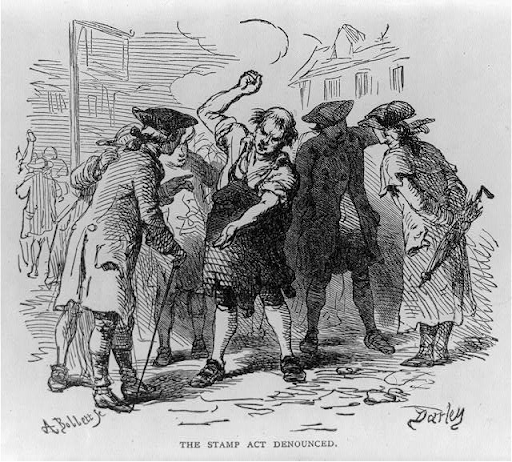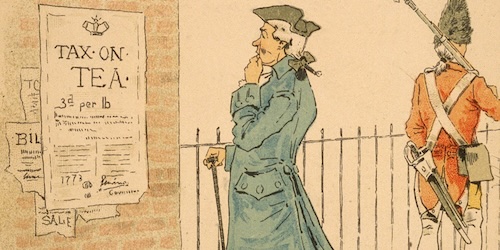After the French and Indian War, Britain was in serious debt. To help pay for soldiers stationed in the colonies, Parliament passed new laws that taxed the American colonists. These taxes came through a series of acts that affected trade, paper, and imported goods. Many colonists believed these taxes were unfair and led to growing frustrations across the colonies.
The Sugar Act (1764)
The Sugar Act placed duties on molasses, sugar, coffee, and other goods imported into the colonies. Although the tax on molasses was lowered, Britain began enforcing the law much more strictly. Ships could only dock at approved ports, and merchants had to provide detailed cargo lists. Customs officers were given greater authority to stop smuggling and seize goods.
This act mainly affected merchants and shipowners, who now faced more paperwork, inspections, and delays. Many believed the act threatened their ability to do business and reduced their profits. Colonists were also concerned that British officials had too much control. Although the law focused on trade, colonists questioned Britain’s right to impose taxes without seeking approval from colonial governments.
The Stamp Act (1765)
The Stamp Act placed a direct tax on many printed materials used in the colonies. Colonists were required to buy special stamped paper for newspapers, legal documents, playing cards, licenses, and more. This marked the first time Britain taxed colonists directly on everyday purchases, not just trade.
This law affected a wide range of people. Printers had to raise prices for newspapers. Lawyers had to pay more to file court cases or write contracts. Ordinary citizens were taxed on items like cards or permits. Many colonists strongly opposed the Stamp Act because they believed only their own elected assemblies had the power to tax them. They felt this law showed that Britain no longer saw the colonies as self-governing parts of the empire, but as a way to raise money.

The Townshend Acts (1767)
The Townshend Acts placed duties on goods such as glass, paint, paper, and tea as they entered colonial ports. Though merchants paid the taxes, the added costs raised prices for buyers across the colonies. These acts also gave customs officials more power to search for smuggled items and allowed trials without juries, the group of peers who decide the guilt or innocence of the accused.
Colonists were upset by both the taxes and the way they were enforced. Shopkeepers had to raise prices. Tradesmen had fewer customers. Families paid more for everyday supplies. Many believed the new rules violated their rights and gave Parliament too much control over colonial life. Some feared this was part of a larger plan to weaken colonial governments.

These three laws did more than raise money. They affected how people lived, worked, and viewed their place in the British system. As Parliament continued to impose taxes and duties without input from the colonies, more colonists began to feel that their voices were being ignored. This growing sense of unfairness would shape what came next.
